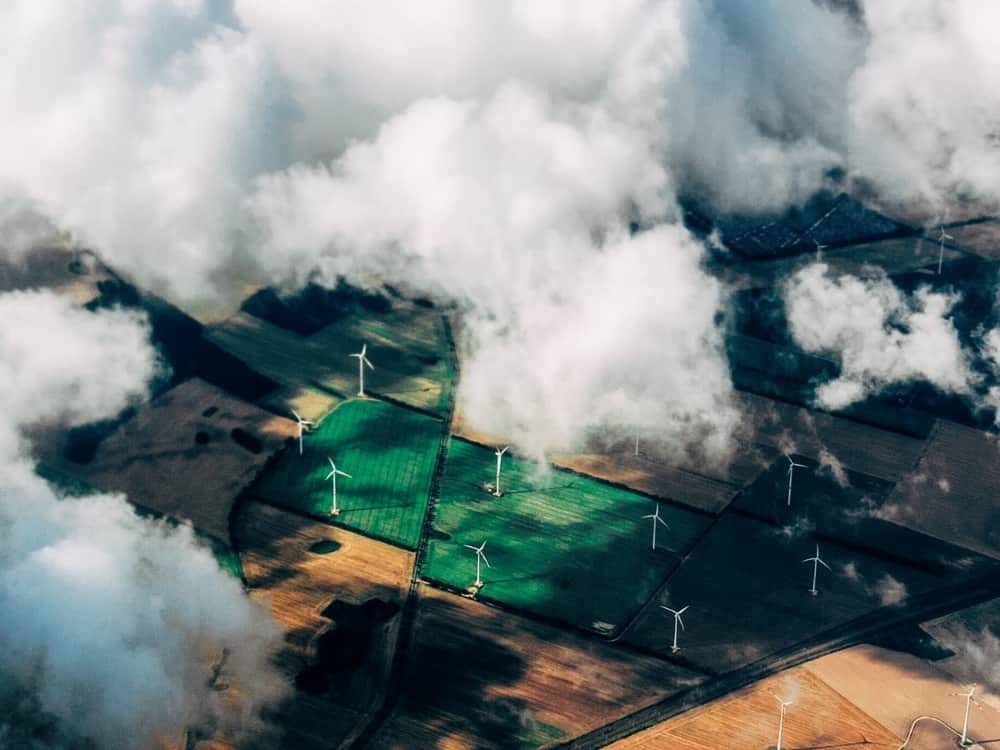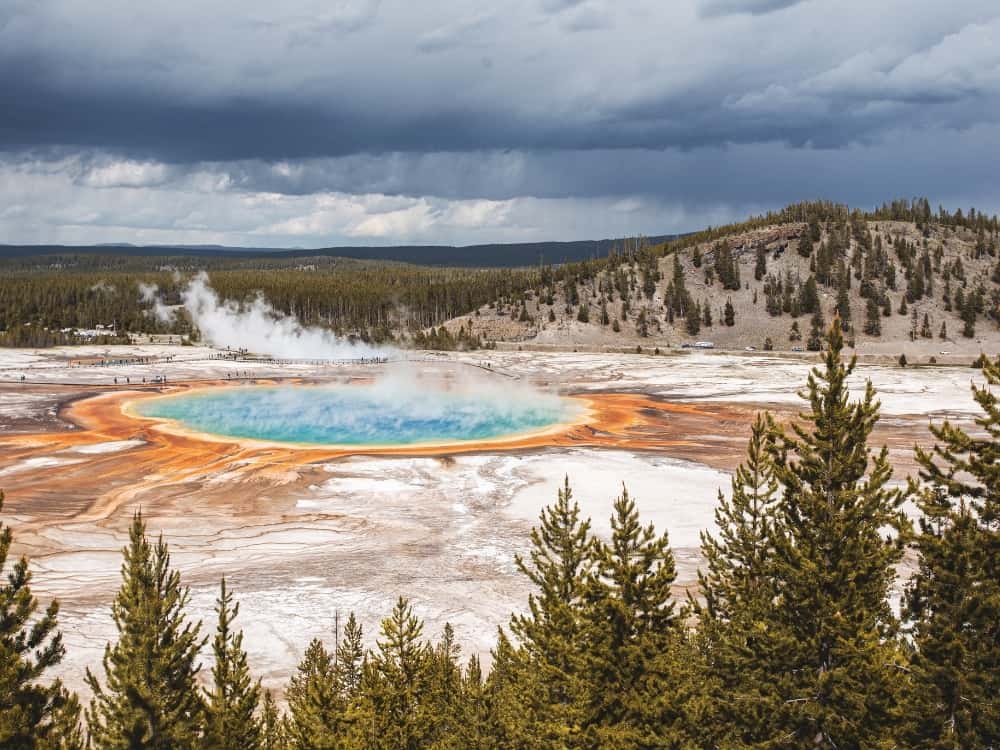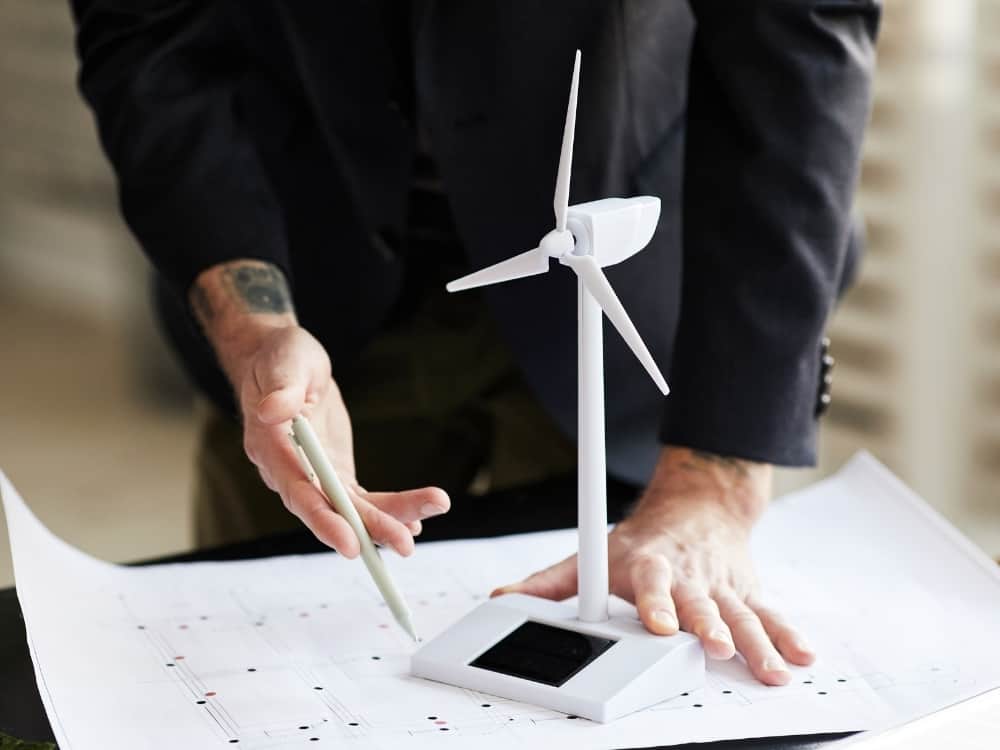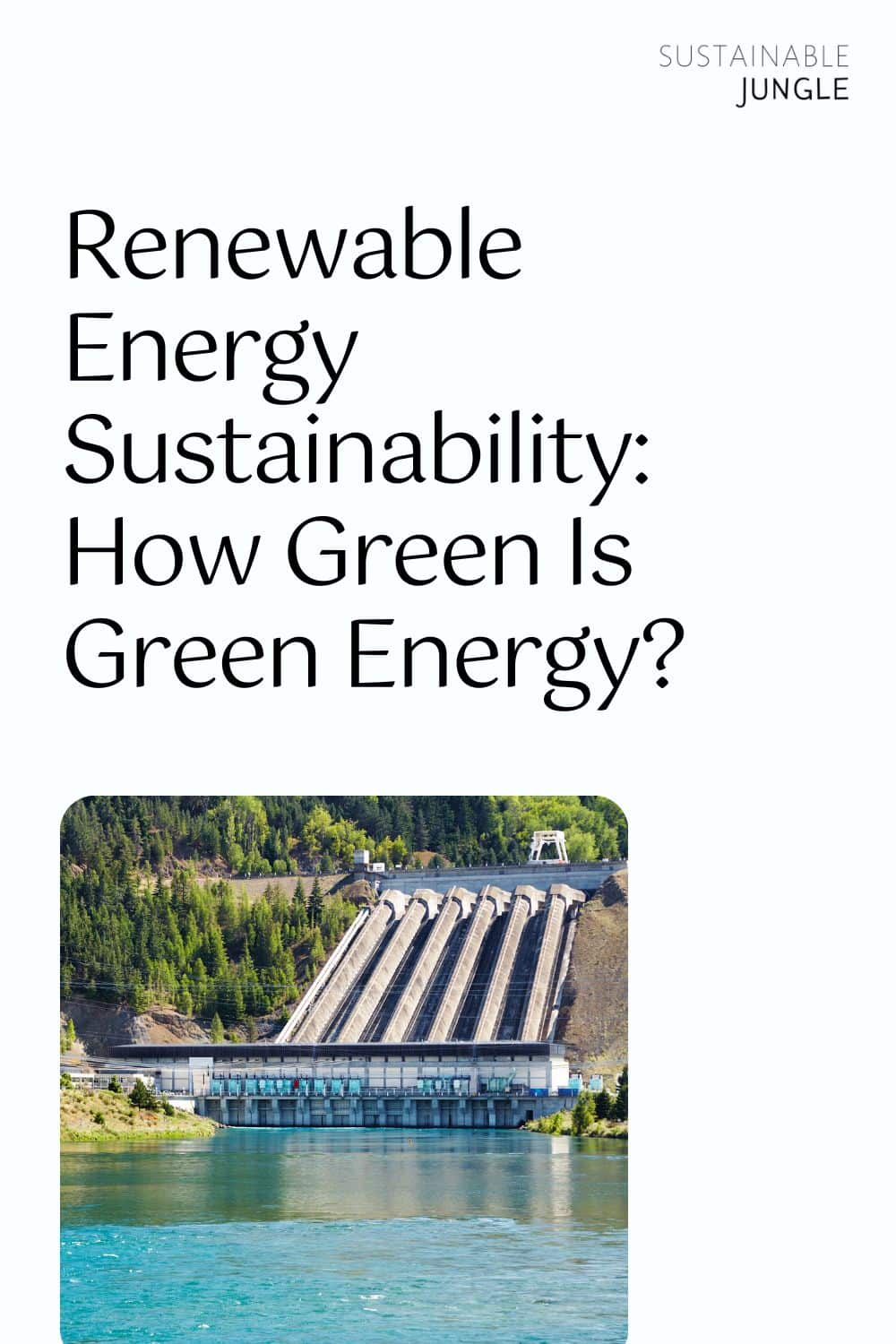
Renewable Energy Sustainability: How Green Is Green Energy?
When discussing renewable energy sustainability (and why it matters) a powerful image comes to mind, conjured from the award-winning documentary film Up the Yangtze.
In the film, a cruise ship of mostly American tourists and Chinese locals displaced by the Three Gorges Dam hydroelectric project travel up the Yangtze River, together exploring the marvels and mayhem of a modernizing China.
One of the most hotly contested projects of its time, the Three Gorges Dam submerged thousands-year old villages and displaced over two million rural peoples in China—not to mention the environmental havoc the project wreaked.
The river is of such significance that many Chinese believe their souls will pass through Fengdu, a now abandoned and partially submerged city along the river, on their way to the afterlife.
The dam has also served as a great symbol of China’s economic prowess and technological advancements, generating enough renewable energy (hydro) in just one day to power 5.4 million households for one entire month.
Projects like the Three Gorges Dam underscore the oftentimes double edged sword of renewable energy and brings up an important question: is renewable energy sustainable?
The Full List Of Facts About The Sustainability Of Renewable Energy
1. What Is Sustainable Energy?

To better understand renewable energy sustainability, or rather, the sustainability of current renewable energy sources, we need to differentiate renewable energy and sustainable energy—which are not the same entirely.
The most widely held definition, as per the 1987 United Nations Brundtland Commission, defines sustainability as “meeting the needs of the present without compromising the ability of future generations to meet their own needs”.
Sustainable energy, then, is power, energy, or electricity derived from resources that can maintain current operations without jeopardizing the energy needs or climate of future generations.
As a rule of thumb, when looking at sustainable energy vs renewable energy, something renewable might not always be sustainable, while something sustainable will always be renewable.
Renewable Energy Vs Sustainable Energy
Renewable Energy Meaning
Renewable energy comes from pre-existing resources that naturally sustain or replenish themselves, as opposed to fossil fuels, which are harmful to people and the planet to both extract and use, and are also finite resources.
Renewable energy, by definition, replenishes the primary energy resource over time, compared against the energy usage rate.
This is why traditional energy sources like coal and oil, which take millions of years to form and are used up quickly, are not renewable sources and why for example solar power, which can always be replenished, is considered a renewable source.
Fortunately, today renewables are becoming more cost-effective, plus their impact on the environment is far less severe.
In theory, we should be able to use renewable power sources to supply our energy needs indefinitely if we can take advantage of the earth’s ability to grow and recycle organisms.
Sustainable Energy Meaning
Sustainable energy, while inclusive of renewable energy, takes it a step further to recognize that the ability of the energy source to replenish itself isn’t enough to combat climate change and to ensure a healthy environment for generations to come.
If renewable energy is energy created and replenished naturally, then sustainable energy is energy that can reliably meet short- and long-term needs of a group or society.
Not only renewable, sustainable energy also exists in harmony with the natural environment and the energy infrastructure should be made from environment-friendly materials.
2. Is Renewable Energy Sustainable?

All sustainable energy is renewable, while each type of renewable energy offers a different degree of sustainability.
Renewable energy means the resource infinitely replenishes itself, and sustainable energy means that the rate of replenishment is higher than the rate of resource harvest.
It’s important to understand the difference between sustainable and renewable energy, since both aspects are important to combating climate change and democratizing energy sources.
When looking at renewable energy sustainability, solar, wind, micro/low hydropower, tidal, geothermal, and wave energy are all renewable AND sustainable, while large hydro energy and biomass are not sustainable, but they ARE renewable.
Nuclear power is a hotly contested clean energy that is neither renewable nor sustainable, but can be a valid substitute for fossil fuels.
Is Solar Energy Sustainable?
Solar energy provides enormous amounts of energy from the sun through photovoltaic cells that then store energy in a battery.
Downsides are that production requires consistent sunlight and a large surface area for panels. As with geothermal energy, solar power is often used as a direct heat source and electricity generator.
The main concerns associated with solar panel sustainability are land use, water use (for cooling), and hazardous mined materials.
Hydrochloric acid, nitric acid, hydrogen fluoride, sulfuric acid, 1,1,1-trichloroethane, and acetone are used to make PV cells. These present a risk to public health and the environment if not handled or disposed of properly.
Overall, solar sustainable energy sources have minimal GHGs and do not negatively affect the environment, so long as proper siting and disposal happens.
Is Hydro Energy Sustainable?
To harness hydro energy, flowing water turns turbines and spins a generator to generate electricity.
Hydro power is usually divided into two categories, low-impact hydro and large hydro.
With low impact hydro, the installation of small turbines in irrigation canals, water-treatment plant outfalls, or existing hydroelectric facilities helps to minimize any emissions and environmental impact.
Still, it’s a less sustainable option because it alters the natural environment, harms aquatic life, floods large areas, and produces more GHGs.
When a reservoir is filled with water, submerged organic matter decomposes and breaks down, which releases carbon dioxide (CO2) and methane.
Is Geothermal Energy Sustainable?
Geothermal energy is considered one of the cleanest energy forms and is commonly found along major tectonic plates where volcanoes are located.
By drilling up to a mile deep into hot water reservoirs below the Earth’s surface, steam is created that rotates a turbine, which spins a generator to generate electricity.
While geothermal is considered highly efficient and safe, it has exorbitantly high upfront costs, is location-specific, generates waste and emissions, and in some extreme cases, can even cause earthquakes.
Is Wind Energy Sustainable?
Wind comes from the Earth’s rotation and uneven heating and topography of the Earth’s surface.
To harness wind energy, the wind turns wind turbine blades around a rotor, which spins a generator to make electricity. And so long as the wind blows, its power can be harnessed.
While wind energy is sustainable, its main sustainability issues are inconsistency, land use, impact on wildlife, and public health issues.
Not only do wind turbines take up vast expanses of land, but they also threaten birds and bats, use huge amounts of oil and lubricants to function, plus they cause a lot of noise, meaning they shouldn’t be built near human settlements.
Because wind patterns can be highly unpredictable, the main issue with wind energy sustainability is its inconsistency.
Is Biomass Energy Sustainable?
Renewable energy and environmental sustainability don’t always automatically go hand in hand.
Biomass energy comes from agricultural crops, wood, biogenic materials, animal manure, and human sewage that are burned to release stored energy. It’s considered renewable because human activity consistently creates the organic matter that is burned for energy.
While it cannot be depleted like fossil fuels, it’s actually one of the “dirtiest” energy sources.
Not only does biomass create air pollution hazardous to human health, but many communities living near biomass energy facilities complain of poor air quality, dust, and noise.
Additionally, biomass energy can leak methane gas and improper storage of materials can lead to fires or explosions.
For these reasons, biomass energy is renewable but not sustainable.
Is Nuclear Energy Sustainable?
The sustainability of nuclear energy is a hotly debated subject today.
Nuclear power is generated through fission, which splits uranium atoms to create energy. The heat released from fission produces steam that spins a turbine to generate electricity without the fossil fuels or their harmful byproducts.
While proponents of nuclear energy argue that it’s a zero-emission clean energy source, events like Chernobyl and the more recent Fukushima Daiichi accident point to the dangers of nuclear power management and waste management.
Detractors of nuclear energy highlight the non-renewable nature of uranium, along with the potential for radioactive accidents and the byproduct waste that lasts for tens of thousands of years.
That said, nuclear energy is an affordable and low-carbon method to produce electricity.
3. Renewable Energy For Sustainable Development

For the planet to sustainably meet future energy needs while limiting climate change and encouraging rising economies and living standards, then affordable, clean, and reliable sustainable energy solutions are essential.
To solve these issues and improve energy access in the world’s poorest countries, along with the UN’s 2030 Sustainable Development Goals, we need clean power on an unprecedented scale.
SDG Goal 7 calls for “access to affordable, reliable, sustainable, and modern energy for all, which includes universal access to electricity and to clean cooking facilities by 2030”.
But in 2020, nearly 800 million people lacked access to electricity, with a staggering 2.6 billion relying on polluting fuels or wood burning for daily cooking.
The proliferation of renewable energy for sustainable development will reduce greenhouse gas emissions, improve energy security, and provide access to energy to communities that previously were without it.
There are a number of other sustainable renewable energy benefits:
- Improved public health: Burning fossil fuels in natural gas and coal plants (which pollutes water and the air) is tied to neurological damage, cancer, heart attacks, asthma, and premature death.
- Creation of local jobs: Renewable infrastructure provides jobs and training as opposed to that money being spent for offshore energy imports.
- Reduced carbon footprint: While not all zero carbon, renewable energy means a reduced dependence on fossil fuels and the incredibly emission intensive process behind mining, refining, and burning them.
- Long-term affordability: while upfront costs are daunting, the long-term investment in the US pays off in only a few years. Sustainable energy costs decrease each year. Plus, certain states offer tax reductions for choosing sustainable energy.
- Improved energy security: By definition, sustainable energy is reliable and, well, sustainable. It doesn’t deplete, plus it helps to conserve the Earth’s natural resources and reduce the pollution and damaging, unsustainable facets of fossil fuels.
4. Looking Ahead: Improving Renewable Energy Sustainability

Expanding renewable energy isn’t easy, and oftentimes it is criticized thanks to poor planning.
Most renewables require a vast amount of land, which can put renewable energy developments in direct conflict with public access to wild land, indigenous rights, and ranching and farming.
There’s also increased deforestation and biodiversity loss when land is cleared for the installation of renewable energy.
In some cases, renewable energy expansion has in fact increased emissions thanks to forests being cleared for so-called renewable wood-fired power generators.
The actual merits and drawbacks of renewables aside, the fossil fuel industry’s mighty grip on world economies and politics provides the biggest challenge yet for widespread renewable adoption.
As it stands, our present-day electricity generation (primarily by fossil fuels) is the largest contributor to climate change, or 75% of all global GHGs.
As the rich become more rich, it’s largely thanks to fossil fuels, which also fuel things like the fast fashion industry, the global shipping industry, and the automotive and aviation industries.
A radical deviation from business-as-usual, many politicians worry that renewable sustainable energy sources will compromise that economic development.
While the latest science counters this, the research community’s voice isn’t properly being broadcast nor heard.
That said, limitless renewable energy comes at a high price, which could mean increased waste and shortages if policymakers, investors, and communities alike don’t make the concerted efforts required for the new planning and infrastructure.
In order to improve sustainable energy systems and SDG Goal 7 to “ensure access to affordable, reliable, sustainable and modern energy for all”, we as global citizens will need to keep demonstrating to our changemakers and politicians that sustainability and renewable energy matter now more than ever.
Plus, it is our public interest that fuels innovation and creates more effective methods of harnessing renewable resource
More efficient solar panels, more powerful wind turbines, and more efficient energy storage systems made renewable energy increasingly competitive with traditional fossil fuels.
Already today, solar power for example has become one of the most affordable forms of electricity, and will continue to reduce in price soon becoming significantly cheaper than fossil fuels.
Did you know we Have a Newsletter?
We cover the latest in sustainable living, fashion, zero waste, beauty, travel, finance and more…
Final Thoughts On Sustainability & Renewable Energy
We aren’t looking to construct a world full of solar panels and wind turbines simply for their own sake.
We’re looking to rebuild the world into a more abundant, healthy, and just place.
Regarded as one of the keys to sustainable development, renewable energy sustainability promises a hopeful and prosperous future for everyone on Earth.
While improvements continue to advance through research, funding, and innovation, these solutions must quickly take the driver’s seat from traditional fossil fuels.
To do so, the world needs leaders who aren’t bound by outmoded thinking and interests of greed, but instead those brave leaders who know the newest science and draw upon its research to build public support for the renewable energy transition.
Have a friend passionate about the intersections of social and environmental justice?
Then please, pass along this article to spread the love and momentum for renewable energy and sustainability.
Pin these:





